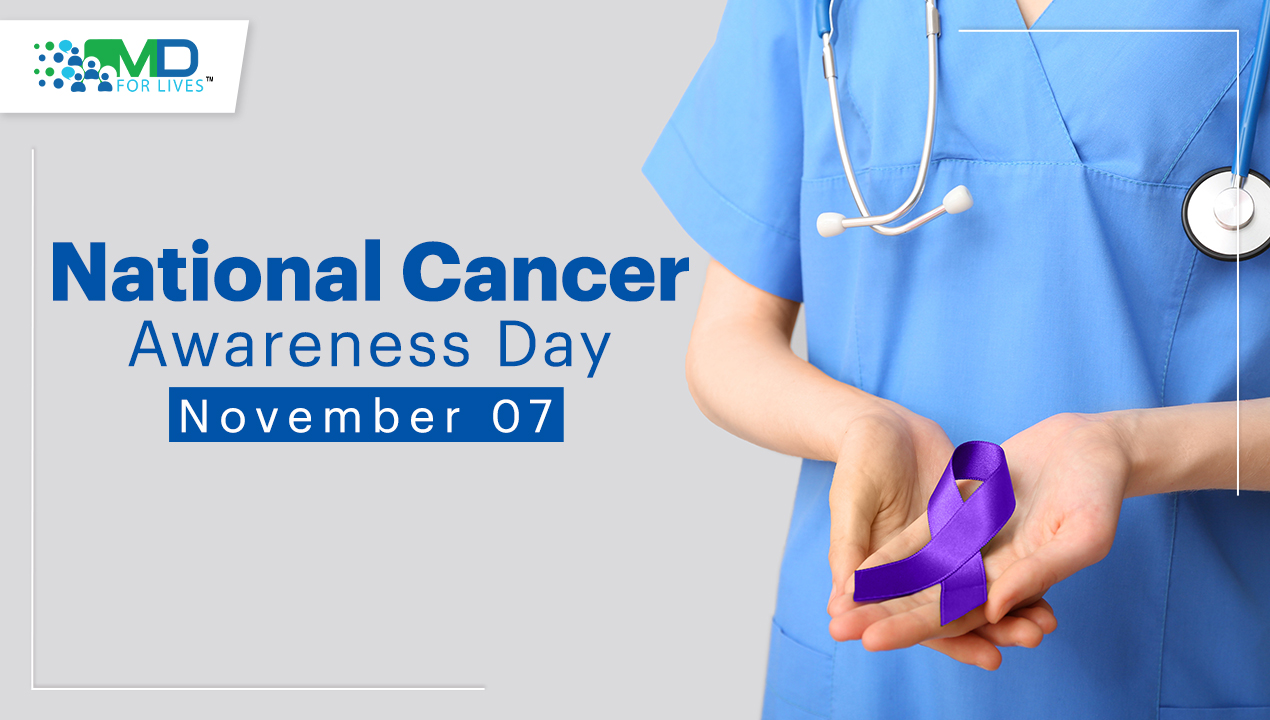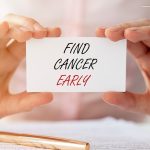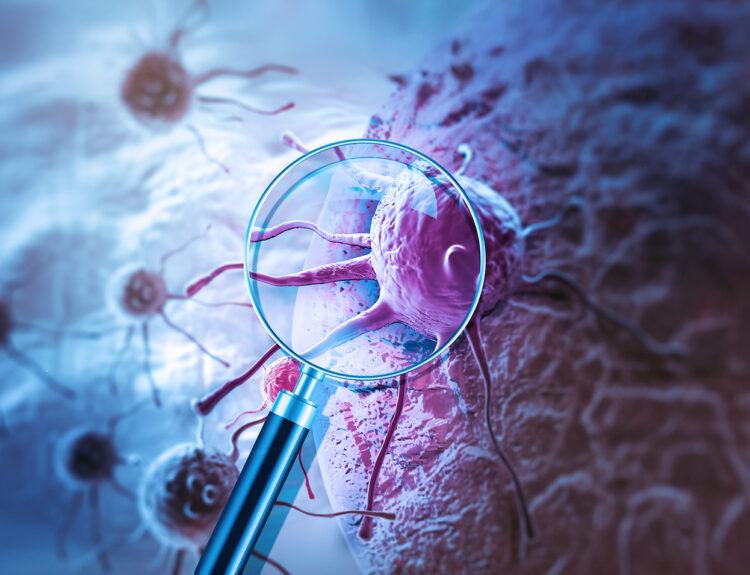National Cancer Awareness Day holds a special place in the hearts of individuals and communities across the globe. It is a day that transcends borders and backgrounds, uniting people in a common cause – the fight against cancer. This day, observed annually, stands as a reminder of the significance of cancer prevention, early detection and treatment. It serves as a beacon of hope, encouraging individuals to be vigilant about their health, support those facing cancer and advocate for breakthroughs in the field of oncology.
Today, as we celebrate National Cancer Awareness Day, we would like to take an opportunity to shine a spotlight on a concerning issue. A recent survey conducted by us has unveiled a noteworthy statistic that demands our attention – 31% of oncologists are encountering significant challenges in ensuring patient access to targeted therapies.
To know and understand the implications of this finding and its potential impact on cancer care, read this blog till the end.
First Things First – Gain a Clear Understanding of Targeted Therapies
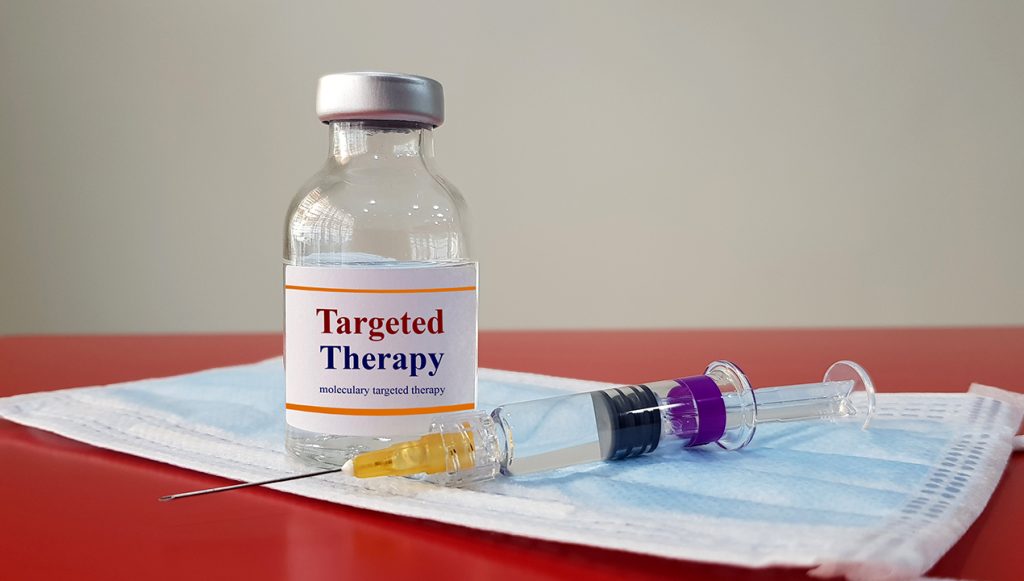
Contrasting with traditional chemotherapy that indiscriminately targets rapidly dividing cells, targeted therapy often referred to as precision medicine or precision cancer therapy, takes a more refined approach. Instead of killing rapidly dividing cells, it focuses on the intricate mechanisms within cancer cells to halt or impede their growth and spread. This precise intervention occurs at the cellular level.
Targeted therapy for cancer primarily falls into two different categories – small-molecule drugs and monoclonal antibodies, each with distinct mechanisms and applications.
- Small-Molecule Drugs: These are characterized by their compact size, which enables them to penetrate cancer cells effectively. Consequently, they are well-suited for targeting cellular components located inside the cell.
- Monoclonal Antibodies: These on the other hand are lab-made proteins. They are created to bind to specific targets found on cancer cells.
Certain monoclonal antibodies make cancer cells visible and aid in their destruction by the immune system. Others directly inhibit cancer cell growth or trigger self-destruction. Some even deliver toxins to cancer cells!
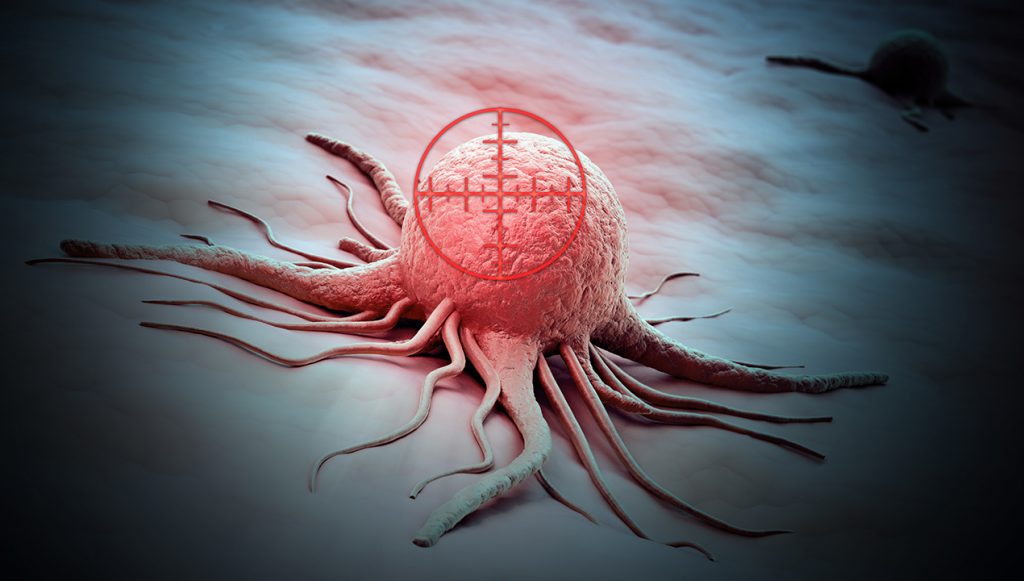
Please note: Targeted therapy or precision cancer therapy is undoubtedly a groundbreaking advancement in oncology that comes with notable benefits. Yet, it carries certain side effects. While diarrhea and liver problems are common, additional potential side effects encompass blood clotting and wound healing issues, high blood pressure, fatigue, changes in nails, graying of hair, and skin rashes and dryness.
Oncologists’ Knowledge Assessment on Targeted Therapies
Wondering, are oncologists aware of targeted therapies (precision medicines)? Of course, they are! A significant majority of oncologists, specifically 69%, are well-informed of the forthcoming targeted therapies/precision medicine treatments such as – Poziotinib (NSCLC), Lazertinib, Tazemetostat (Lymphoma), CAR T-cell therapy, Bispecific antibodies, Afatinib (NSCLC) and Lapatinib, which are presently undergoing clinical trials. This awareness reflects a pivotal and progressive shift in the way cancer is understood and treated!
To make our statement concrete, here’s the data showcasing how oncologists are always staying informed about the latest advancements in targeted therapy oncology, which aims to conquer cancer and save millions of lives globally.
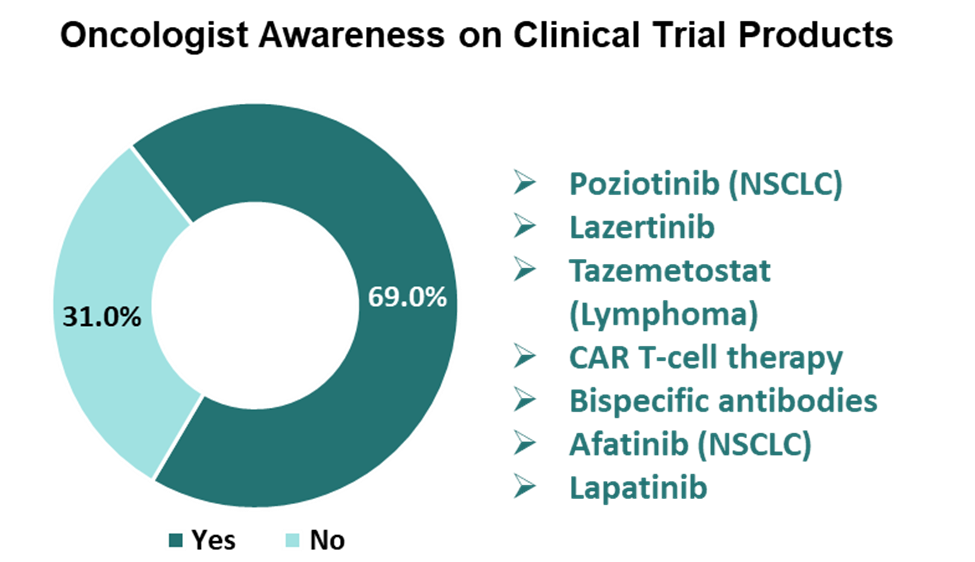
Companies that Oncologists Trust the Most for Precision Oncology Medicines
Although there are many companies that manufacture precision oncology medicines, yet, as per our recent survey, 80% of oncologists have forged significant partnerships with Decipher Bio and 20% of them vouched for Radiation Therapy Oncology Group (RTOG).
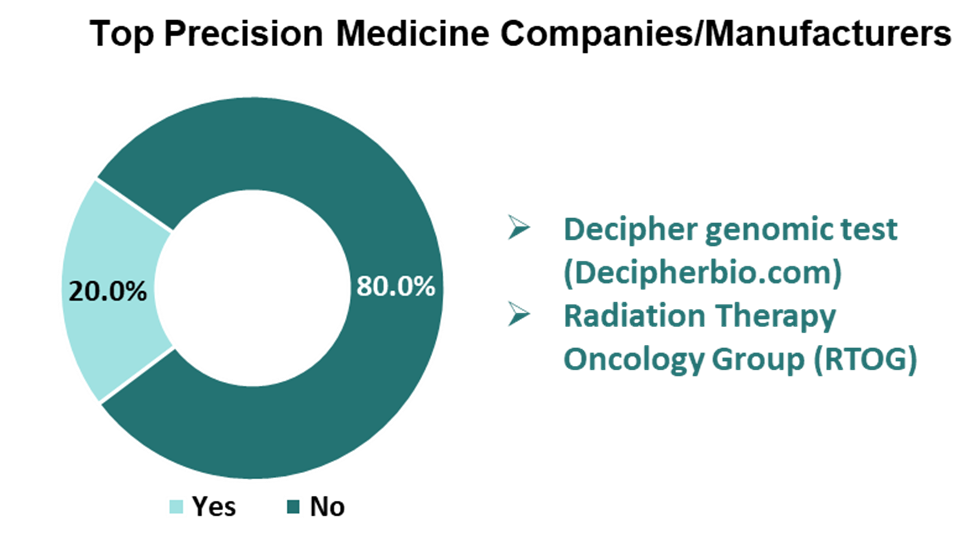
The extensive collaboration with Decipher Bio speaks volumes about the pivotal role the company plays in battling cancer. This profound alliance between oncologists and Decipher Bio highlights the accelerating shift from chemotherapy, which has been considered as the primary or sole treatment for cancer, towards precision medicine or targeted therapy for cancer.
Spotlighting Challenges and Unmet Needs
While oncologists have enthusiastically embraced targeted therapies/precision medicines to confront a diverse range of cancers in both men and women, notable challenges still require our focus. In the opening of this blog, we emphasized that 31% of oncologists face formidable obstacles in ensuring patient access to targeted therapies; it’s time we discuss in-depth about it.
Targeted therapies are like precision-guided missiles, aiming directly at cancer cells and offering the potential for more effective and less invasive treatment options. However, the path to delivering these treatments to those in need is often far from straightforward. It’s a journey filled with hurdles, ranging from concerns about affordability to issues of limited availability and the complexities of navigating insurance systems. It’s great that our survey takers (oncologists) have opened up about this challenge and are engaged in an ongoing battle to overcome these barriers, driven by their unwavering commitment to enhancing patient care and pushing the boundaries of cancer treatment.
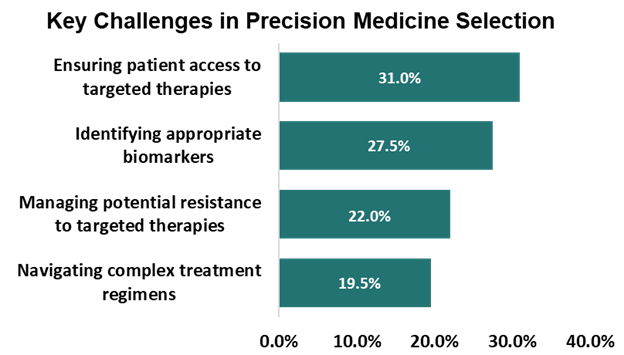
But wait, the challenges don’t end here. Another significant obstacle faced by 27.5% of oncologists revolves around the identification of appropriate biomarkers. These biomarkers act as the intricate codes that unlock the potential of targeted therapies, resembling a treasure map guiding us towards the most effective treatment paths. It’s a quest that requires precision and patience, as oncologists and researchers work together to decode genetic patterns that can lead to more personalized and effective treatments.
In addition to these challenges, there are also critical unmet needs that warrant our attention. At the forefront of these unmet needs is the pressing issue of cost and reimbursement, an obstacle highlighted by 27% of oncologists. The financial burden associated with targeted therapy for cancer treatment, often exacerbated by complex insurance systems, continues to loom large, affecting both patients and healthcare providers alike.
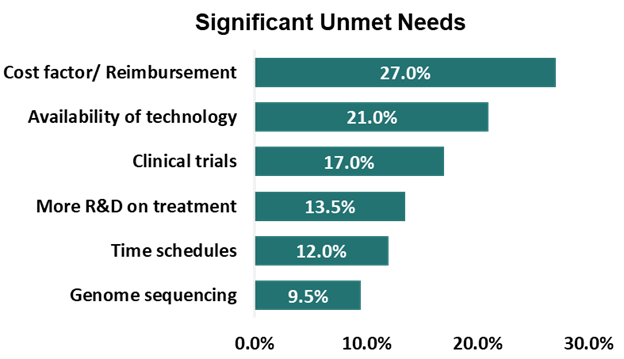
Furthermore, 21% of oncologists have highlighted the necessity of addressing the unmet need related to advanced technology availability. Access to cutting-edge tools and resources is essential for staying at the forefront of cancer care and research. These findings emphasize the urgency of bridging these gaps to ensure that the highest standard of care reaches those embarking on the challenging journey of cancer.
Conclusion – Let’s Conquer the Challenges; Let’s Address the Unmet Needs!

Years ago, the very idea of finding solutions to cancer through treatments like chemotherapy and targeted therapies felt like an unattainable goal. Yet, today, we stand in awe of the remarkable progress that has been made, offering renewed hope in our fight against cancer. Similarly, the challenges and unmet needs that we have discussed in this blog will eventually find resolutions.
On the special occasion of National Cancer Awareness Day, MDForLives extends a warm invitation to oncologists who are passionate about driving change in the field of oncology. We invite you to participate in our paid medical surveys, where you can generously share your insights, engage in discussions about challenges and propose solutions to address unmet needs. Register for our surveys today and be a crucial part of the ongoing battle against cancer! Your contributions have the power to create a substantial impact.
References:
- Oncology, MDFL Survey Data
- Targeted Therapy (Precision Medicine)
Source: mdanderson.org - Targeted Therapy to Treat Cancer
Source: cancer.gov

MDForLives is a global healthcare intelligence platform where real-world perspectives are transformed into validated insights. We bring together diverse healthcare experiences to discover, share, and shape the future of healthcare through data-backed understanding.

